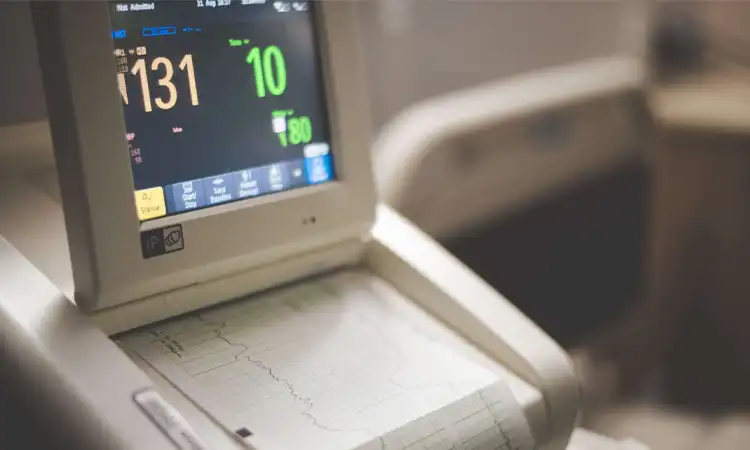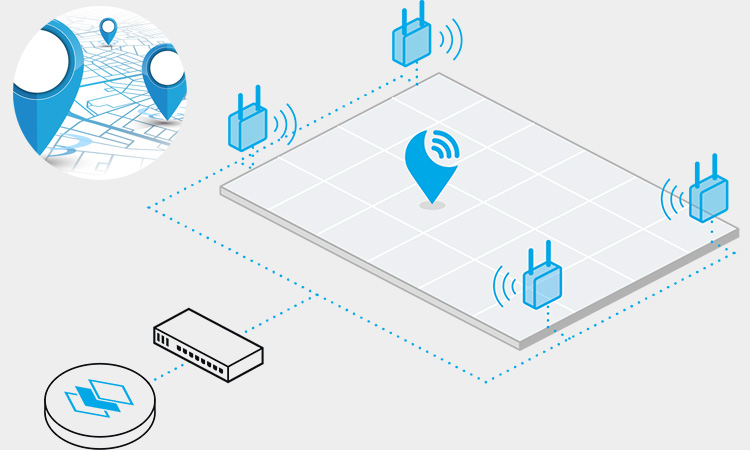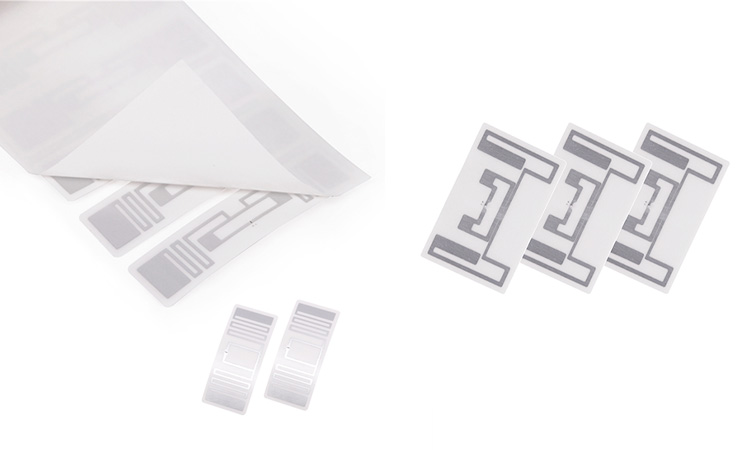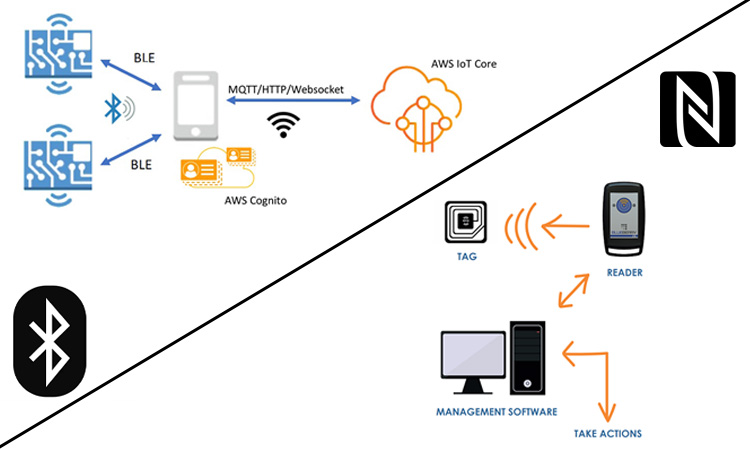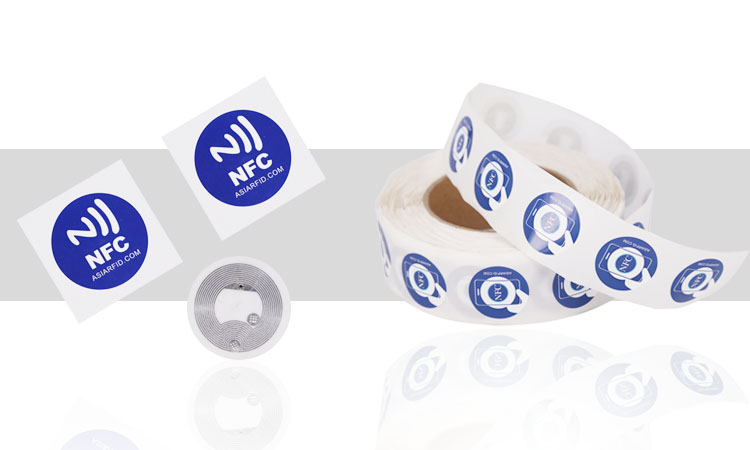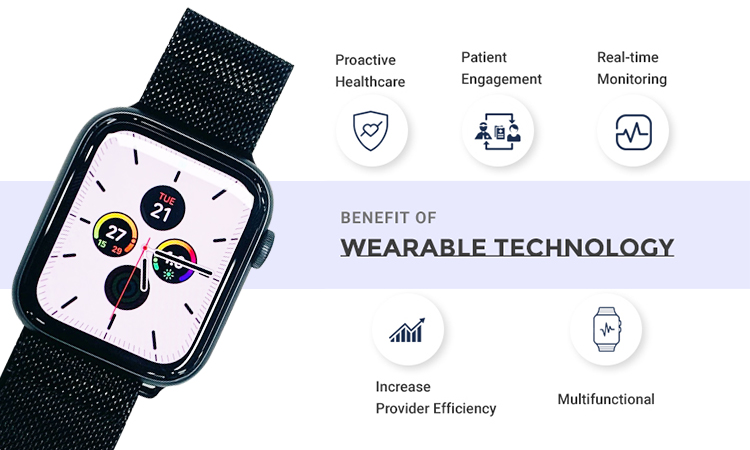Telemetry is one of the fastest-growing areas of nursing. It’s also one of the most exciting because it combines versatility with high-tech medicine. If you want to be part of a field where you can help patients recover from everything from heart attacks to cancer treatments, telemetry nursing is for you. Telemetry units are typically found in hospitals but can also be found in other settings like urgent care centers or private practices.
What Is a Telemetry Unit in a Hospital?
A telemetry unit is where healthcare providers track patients with heart problems. This is because the patients need intensive monitoring and treatment while they stay there.
Here is the definition of ICU from Wikipedia:
An intensive care unit (ICU), also known as an intensive therapy unit or intensive treatment unit (ITU) or critical care unit (CCU), is a special department of a hospital or health care facility that provides intensive care medicine.
Telemetry ward are where patients with cardiac conditions can receive constant care from healthcare providers. These units are important because they help track heart activity and ensure a stable patient condition. The unit also provides access to necessary equipment for treatment and emergency intervention.
This type of care aims to keep you safe while giving you access to all the tools you need for recovery and long-term management of your condition. This includes medication and other treatments that aren’t always available in an outpatient setting.
Patients who receive care in these units have often undergone surgery or have been diagnosed with COPD or high blood pressure—all conditions that require ongoing monitoring by healthcare professionals.
Patients with severe or life-threatening illnesses or injuries are treated in the intensive care Unit, receiving constant medical attention. In contrast, the telemetry unit is for stable patients but still requires ongoing monitoring. Patients in telemetry wards tend to have a high turnover rate as their condition may change at any moment.
What Kind of Patients are on a Telemetry Unit?
This unit has three types of patients:
- Class I patients are often referred to as “stable” patients because they display cardiac issues that require monitoring;
- Class II and III patients have more specific needs, including chest pains (often associated with pacemakers) and cardiac surgery.
The goal of the telemetry unit is to provide specialized care and monitoring to help patients recover from their cardiac condition and prevent further complications.
How Long do Patients Stay in Telemetry Unit?
The patient’s response to treatment often determines the length of stay in a telemetry unit, the need for further diagnostic testing, and the availability of resources and care settings. Some patients may only require a few days of monitoring, while others may need to stay for several weeks or longer.
Once a patient’s condition stabilizes and they no longer require continuous cardiac monitoring, they may be discharged from the telemetry unit to another hospital unit or to home with appropriate follow-up care.
Telemetry Unit Job Description: What is Telemetry in Medicine?
In the medical field, telemetry refers to the remote monitoring of a patient’s vital signs and other physiological parameters using wireless technology. This allows medical staff to monitor patients in real-time, even from a distance, and to respond quickly to any changes in a patient’s condition.
Telemetry systems typically involve sensors or electrodes attached to the patient’s body and transmit data wirelessly to a central monitoring station. This station can be located within the same hospital or clinic as the patient, or it can be located remotely, allowing for real-time monitoring and analysis of the patient’s condition from a distance.
What do Healthcare Professionals do in the Telemetry Unit
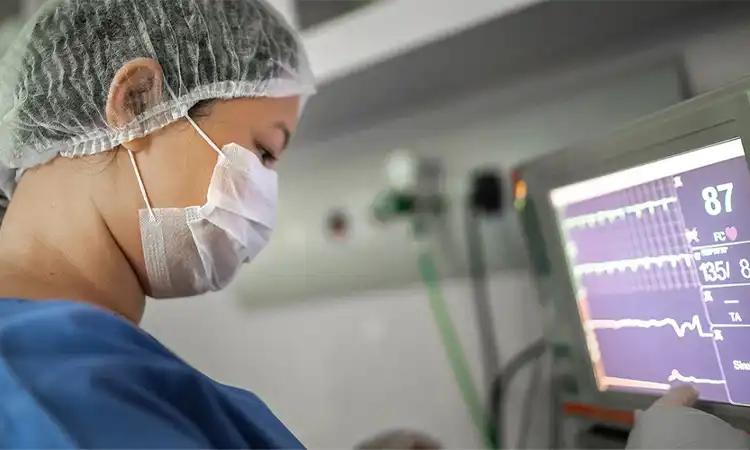
The telemetry medical unit is a vital part of any hospital. It’s where healthcare providers go to care for patients experiencing heart conditions. It can be used in hospitals, nursing homes, and other facilities where patients need intensive care. The medical telemetry ward provides a safe environment for these patients. This helps prevent further complications that could arise from their conditions.
The medical telemetry unit nurse must have different responsibilities, which include monitoring and evaluating the patient’s heart rhythms and respiratory function. They also need to know how to use medical devices and equipment in this area. The main purpose of these devices is to monitor the heart rate and rhythm of patients at risk for heart attacks or strokes. They also help doctors diagnose other cardiac conditions such as arrhythmia, atrial fibrillation, etc.
The work done in this area focuses on making sure that all patients receive treatment for their conditions. It’s important for all workers to be lifelong learners because they must continuously improve their knowledge and clinical skills to promote positive patient outcomes.
The telemetry ward nurses will record vital signs and health status, as well as make reports that they give to cardiologists. Nurses will also use the cardiologists’ care plan when providing treatment or other services. The nurse will also administer intravenous injections when necessary and other treatments such as medication as needed. This depends on what is needed at any given time according to the patient’s needs at that time. While they reside at this particular location, they are cared for by the professionals who work here every day.
Start Working in a Telemetry Hospital Unit
If you want to work as a nurse in a hospita telemetry ward, there are some things that you need to know.
Telemetry nurses must have certain certifications to work in this unit. You’ll need the Advanced Cardiac Life Support certification. It certifies that you can intervene if a patient goes into cardiac arrest. You’ll also need the Progressive Care Certified Nurse certification. This certification takes longer, but it will help you get the job done right and keep patients safe.
It would be best if you also considered getting a National Telemetry Association (NTA) certification. This specific certification prepares nursing professionals for working in that type of environment specifically. It’s one of the most important certifications for any nurse looking for employment with this hospital unit.
You can learn more about telemetry certification in here.
What to Expect on a Telemetry Unit
When admitted to a telemetry ward, you will be placed in a room equipped with specialized monitoring equipment. This equipment continuously tracks your vital signs, such as heart rate, blood pressure, and oxygen levels. It will send information about your vital signs to a central monitoring station. Caregivers can then follow your condition from there.
During your stay in the telemetry unit, the nursing staff will check on you frequently to ensure you are comfortable. They will help you with any problems you may have. They will also conduct regular assessments to monitor your progress. They will assist your doctor in adjusting your treatment plan as needed. During treatment, you may also receive various treatments as needed for your condition. These may include medications, oxygen therapy, or other treatments.
In addition to medical care, you will receive help with daily activities such as bathing, grooming, and dressing. You will also receive meals that meet your dietary needs and preferences. If you have any questions or concerns, you can always talk to your caregiver or your health care provider.
Telemetry Nurse vs ICU Nurse

Telemetry and intensive care unit (ICU) nurses work in the same setting but have different roles and responsibilities. Telemetry nurses work only in the telemetry unit, while intensive care unit nurses may be assigned to any hospital area requiring critical-care nursing.
Telemetry nurses must be able to work quickly and efficiently without sacrificing patient safety. They also need excellent communication skills because they spend a lot of time communicating with physicians and other medical staff. The ability to speak many languages is also beneficial for telemetry nurses who work at large hospitals with diverse populations.
Telemetry nurses are trained to track patients’ heart rates, blood pressures, and oxygen levels remotely through wireless telemetry monitors. They also help doctors determine if patients need additional tests or treatments by interpreting the readings of these monitors.
ICU nurses are responsible for providing direct patient care to critically ill patients. They usually have at least three years of experience as an RN before working in an ICU setting. Their responsibilities include administering medications and performing invasive procedures such as placing chest tubes and central lines into the patient’s body.
Telemetry Unit vs ICU
The following table summarizes the differences between the telemetry unit and the ICU:
| Aspect | Telemetry Unit | ICU |
|---|---|---|
| Patient Population | Generally stable patients with a low to moderate risk of complications | Critically ill patients with a high risk of complications and requiring intensive monitoring and intervention |
| Staffing Ratio | Nurse-to-patient ratio is higher (usually 1:4 or 1:5) | Nurse-to-patient ratio is lower (usually 1:1 or 1:2) |
| Monitoring Capabilities | Continuous monitoring of heart rate, rhythm, and oxygen saturation, with intermittent blood pressure checks | Continuous monitoring of multiple vital signs, including heart rate, rhythm, oxygen saturation, blood pressure, temperature, and more, with frequent assessments by physicians and other healthcare professionals |
| Intervention Capabilities | Limited intervention capabilities, such as administering oxygen or medication | Extensive intervention capabilities, including mechanical ventilation, invasive procedures, and complex medication regimens |
| Room Setup | Often a shared room with other patients, with limited space and privacy | Private rooms with more space and amenities for patients and families |
| Length of Stay | Typically shorter stays, often less than 48 hours | Longer stays, often several days or more |
| Cost | Generally less expensive than an ICU stay | Significantly more expensive than a telemetry unit stay |
What is the Daily Work of a Telemetry Nurse?
A cardiac telemetry nurse is a registered nurse who provides care to patients in a hospital or skilled nursing facility. Cardiac telemetry nurses work in a specialized hospital unit equipped with electronic monitoring systems that can monitor vital signs like blood pressure, heart rate, respiratory rate, temperature, and more.
Telemetry nurses manage the equipment and interpret data from it to determine any patient condition problems. They also administer medications as prescribed by physicians or when an emergency physician orders. They document their interactions and treatments and maintain updated patient charts and medical records using digital systems.
In addition to monitoring their heart rate, respiration rate, and blood pressure, telemetry nurses also observe their patients for signs of infection or other life-threatening conditions. They also help ensure that patients receive their medications as prescribed and assist with other aspects of care as needed.
The duties of a telemetry nurse can vary widely depending on the patient population and facility where they work. These responsibilities include the following:
- Monitoring patients’ vital signs such as blood pressure, pulse rate, and temperature, which can be done by using a telemetry device in a hospital.
- Assisting doctors with procedures such as changing dressings on wounds or inserting intravenous lines into veins in the neck or arms.
- Providing emotional support, including answering questions about the patient’s condition and explaining treatments they may receive.
- Perform diagnostic tests such as electrocardiograms (ECG), heart rate variability testing (HRV), Holter monitoring (24-hour ambulatory ECG), or stress echocardiography (ECHO) on patients who are having cardiovascular symptoms related to arrhythmias.
You can get to know what mobile cardiac telemetry is here: The Role of Mobile Cardiac Telemetry in Healthcare
Advantages and Disadvantages of Choosing a Career As a Telemetry Nurse
Telemetry nursing has gained popularity in recent years for many reasons. As the number of patients with chronic illnesses increases, telemetry is becoming more common in hospitals and other healthcare facilities. In addition, technology has advanced to make it easier than ever to track these patients remotely.
This means that telemetry nurses can help patients who might not otherwise have access to care. However, they also face more challenges than their counterparts in other specialties. Here are some advantages and disadvantages to consider when deciding whether or not this is the right career path for you:
Pros of Telemetry Unit Nursing
Telemetry unit nursing is a great way to combine a nurse’s skills and a technician’s technology. As a telemetry nurse, you’ll be able to use your knowledge of medical procedures to help patients monitor their own vitals and track their progress. You’ll also be able to work with the latest technology, including electronic health records and other data collection forms.
The benefits of becoming a telemetry nurse include:
- Telemetry nurses have high-level clinical expertise. They’re responsible for ensuring that patients receive expert care while monitored in an intensive care unit. This requires advanced knowledge of medical equipment, medications, and procedures—and having this knowledge helps make you invaluable to your patients and your team.
- Telemetry is fast-paced. The average ICU nurse is on their feet all day, which means there’s a lot of movement throughout her shift. You’ll likely have time between tasks to rest or take care of other business—but you’ll never have too much time just to sit around waiting for something else to happen!
- Telemetry nurses help patients return home sooner than expected. As an ICU nurse, you’re responsible for helping sick or recovering patients get back on their feet faster than they would otherwise be able to. You may also find yourself working closely with other healthcare professionals specializing in physical therapy or recovery procedures; this helps ensure that no one gets left behind during the process!
- Taking on the role of a telemetry nurse will train you to be responsive. Telemetry nurses work with patients who have complex medical conditions in a hospital setting. They often need to make fast decisions about patient care and treatments, so telemetry nurses must be able to assess their patients’ needs quickly and accurately.
- Telemetry nurses may also have more opportunities for career advancement than many other nursing specialties. This is because of the nature of their work—they’re involved in patient care at all stages of treatment rather than just one specific task like administering medication or changing bandages throughout the day.
Cons of Telemetry Unit Nursing
Telemetry nurses can face many challenges during their career path. However, these challenges can also lead to greater success if they are approached with an open mind and willingness to learn new skill sets!
The disadvantages of becoming a telemetry nurse include:
- Telemetry nursing requires extensive training before working independently in any hospital setting. Many choose this career route because they want more autonomy over their schedule. But do not realize how much more time it takes than working as an ICU nurse would require (which can take anywhere from 1-3 years, depending on how much experience you already have).
- Telemetry nursing is considered one of the most stressful specialties in healthcare today because it requires constant vigilance over the health status of multiple patients at once. The job can be physically demanding as well; many telemetry nurses must stand for long periods on their feet without breaks during shifts that can last up to 16 hours at a time!
- Telemetry nursing is a very fast-paced job. You have to perform many responsibilities in a short amount of time, and since telemetry nurses work in a large team, there are often too many tasks to perform all at once. This can lead to stress, as well as mistakes being made.
- Telemetry nurses may need special training or experience to get hired. Some hospitals may require applicants to have bachelor’s degrees, while others may only require an associate’s degree or experience working as a nurse in another setting.
The core goal of telemetry units is to monitor and treat patients who are critically ill. In order to fulfill this goal, telemetry nurses must be able to effectively assess, monitor and treat patients with a high level of patient-centered care. Thus, they take on one of the most impactful and important roles within healthcare, allowing doctors and other specialists to focus on treatment while meeting the patient’s specific needs.
About Telemetry Unit in a Hospital Q&A
-
What Types of Alarms and Alerts are Typically Used in a Telemetry Unit, and How do Healthcare Professionals Respond to These Alerts?
Telemetry war rooms typically use alarms and alerts to notify healthcare professionals of changes in a patient’s condition or abnormal vital signs. These alerts can be audible or visual and may be sent to a mobile device or pager. Healthcare professionals respond to these alerts by assessing the patient’s condition and administering appropriate interventions.
-
How are Telemetry Units Integrated with Other Hospital Systems?
Telemetry units are typically integrated with other hospital systems, such as electronic health records (EHRs) and communication platforms. This integration allows for the seamless transfer of patient data between different healthcare providers and can help improve care coordination and patient outcomes.
-
What Data Types are Collected and Analyzed in a Telemetry Unit, and How is This Information Used to Improve Patient Care?
In a telemetry war room, data is collected and analyzed in real-time using specialized software. This data includes vital signs and other relevant clinical information, such as medication orders and lab results. This information is used to develop individualized care plans, monitor patient progress, and identify opportunities for improvement.
-
What are the Training and Certification Requirements for Healthcare Professionals in a Telemetry Unit, and What Skills are Necessary for Success in This Role?
Healthcare professionals who work in a telemetry unit require specialized training and certification. These professionals include registered nurses, respiratory therapists, and electrocardiogram (ECG) technicians. Skills necessary for success in this role include critical thinking, attention to detail, and effective communication.
-
How many patients does a telemetry nurse have?
Typically, telemetry nurses in acute care settings have a patient load of between 4 to 6 patients. However, this can vary depending on the hospital’s staffing policies and the acuity of the patients.


